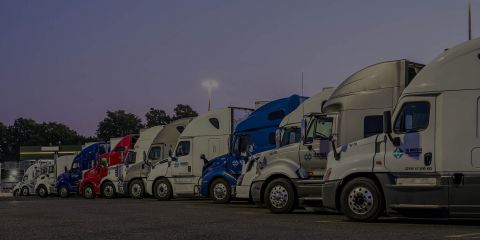2024
Vancouver's Strategic Position in the Trans-Pacific Trade: Opportunities and Challenges

Vancouver is more than just a picturesque city on Canada’s west coast; it’s a vital hub in the global trade network, playing a key role in the trans-Pacific trade and driving (local) economic growth. The city's geographical position, coupled with its modern infrastructure, makes it a strategic gateway for trade between Asia and North America. In this article, we’ll explore Vancouver's strategic position in the trans-Pacific trade, touching on its opportunities and challenges. Additionally, we’ll shed light on how this trade dynamic fits into larger frameworks such as the Trans-Pacific Trade Agreement and Canada’s Indo-Pacific Strategy.
What Is Trans-Pacific Trade?
At its core, trans-Pacific trade refers to the exchange of goods and services across the Pacific Ocean, primarily involving countries in Asia and North America. This trade route is one of the busiest in the world, with goods ranging from electronics to raw materials flowing between continents.
Trans-Pacific Trade Agreement and Canada’s Indo-Pacific Strategy
The Trans-Pacific Trade Agreement, or more formally the Comprehensive and Progressive Agreement for Trans-Pacific Partnership (CPTPP), serves as a legal framework facilitating trade between member countries, including Canada. This agreement reduces tariffs, enhances market access, and strengthens economic ties across the Pacific. Vancouver’s role in this trade is crucial due to its proximity to Asia and its well-developed port infrastructure.
Additionally, Canada’s Indo-Pacific Strategy further positions the country as a key player in trans-Pacific trade. This strategy is a long-term plan to enhance trade relations, security, and diplomatic ties between Canada and Indo-Pacific nations, with Vancouver often serving as the primary gateway for this engagement.

Vancouver's Strategic Position in the Trans-Pacific Trade
Vancouver’s position in the trans-Pacific trade is strengthened by a combination of geography, infrastructure, and government policy. Let’s break it down into key components.
Geographical Advantage
Vancouver’s location on the west coast of Canada gives it an unparalleled advantage. As the closest major North American port to Asia, it serves as the first point of entry for goods coming from the Indo-Pacific region. This proximity reduces shipping times and costs, making Vancouver a logical choice for companies involved in trans-Pacific trade.
For businesses or individuals moving goods from other parts of Canada to Vancouver, Centennial Moving, one of the country's longest-running moving service providers, offers comprehensive moving solutions. Whether transporting personal belongings or commercial goods, visit centennialmoving.ca to ensure a smooth transition from any corner of Canada to Vancouver’s bustling trade hub. Vancouver is not only a landing spot for international goods but also a key warehouse and logistics center for goods in transit, with ample storage space for both personal and commercial needs.
Infrastructure and Warehousing
The Port of Vancouver is the largest in Canada and one of the most efficient in the world. It handles millions of containers annually, with goods destined for North American markets or being exported to Asia. Vancouver’s infrastructure supports its role in trans-Pacific trade with well-developed rail, road, and warehouse networks that facilitate the smooth movement of goods.
Warehouse facilities in Vancouver play a crucial role in trans-Pacific trade, acting as storage points for imported goods before they are distributed across North America. The city’s extensive warehouse network ensures that goods are stored securely and efficiently, helping businesses manage supply chains with greater flexibility. Many warehouses in Vancouver offer cutting-edge technology, including temperature control and real-time tracking, ensuring that even perishable or sensitive goods are handled with care.

Challenges in Vancouver’s Role
Despite its strengths, Vancouver also faces some challenges. One of the most significant issues is congestion at the port, which can delay shipments and disrupt supply chains. This congestion is compounded by a shortage of warehouse space during peak trade periods, leading to delays in the storage and movement of goods. Additionally, geopolitical tensions in the Indo-Pacific region could impact trade routes, potentially making Vancouver’s strategic position even more critical yet more vulnerable to disruption.
Conclusion
Vancouver’s strategic position in the trans-Pacific trade offers tremendous opportunities for growth, but it also comes with its challenges. The city’s proximity to Asia, combined with its robust infrastructure and extensive warehouse facilities, cements its role as a vital player in global trade. At the same time, addressing issues such as port congestion and ensuring continued investment in logistics will be key to maintaining its position. Ultimately, Vancouver's strategic position in the trans-Pacific trade is central to Canada's role in the global economy, and its importance will likely only grow as trade with the Indo-Pacific region expands.
Based in Vancouver, British Columbia, Canada, 18 Wheels relies on experience and integrity to make customers happy and remain on the cutting edge of shipping and logistics management.
If you have any questions about this article or you would like to talk to us about your shipping needs, please call us at (604) 439-8938.
